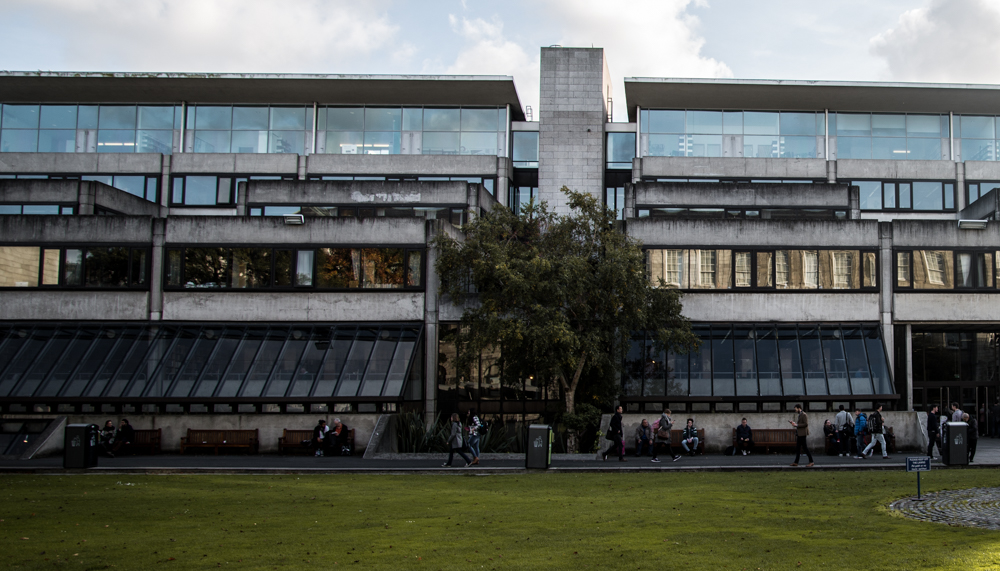A new feasibility study of the Arts Block will begin in the coming weeks and will look at how College can improve and develop spaces and rooms within the nearly 50-year old building.
The study will begin in the next few weeks as Trinity develops an Estates Strategy to review its use of its campus. Speaking to The University Times, Trinity’s Bursar, Prof Veronica Campbell, said that the new study would look at “how we can improve the teaching spaces and the breakout spaces” in the Arts Block. Campbell described the study as a “cost-capped project”, which will look at small improvements that can be made to the building.
Acknowledging that while “you could spend a lot of money on the Arts Building”, Campbell said the project will instead look at how College can “derive maximum benefit” from the building.
“We don’t have huge amounts of money to play with”, Campbell said. She indicated, however, that the project might eventually lead to furniture changes in the Arts Block and other “modest refurbishments”.
As part of the Estates Strategy, Campbell met with many schools based within the Arts Block and discussed the space they have within the building and how suitable the space is for their needs. Campbell also discussed the kind of space these schools would need if student numbers increase or the nature of their courses change.
While there is no timeline yet for any refurbishment works on the Arts Block, Campbell said it was unlikely that any work would begin during this “academic year”. There are currently several capital projects ongoing or in development in Trinity, including the new business school, the Oisín House accommodation project and the new Engineering, Energy and Environment (E3) Institute in the Grand Canal Dock area.
“There’s a lot of capital projects going on at the moment, we can’t do everything all at the same time, but if we know what we’re going to do and what the budget is, we can have a clear timeline of when that work will start”, Campbell said.
Campbell, who has been visiting other universities, particularly in the UK, to compare their use of campus and teaching space, noted that other institutions are “investing substantially” in teaching resources.
Referencing the idea of “adaptive reuse”, where existing buildings are refurbished and repurposed, Campbell noted that such a model might be a possible option for some buildings under the campus master plan. This master plan will be partly informed by the results of the Estates Strategy.
The new strategy is expected to be complete by June 2017, with the implementation of the strategy beginning in June 2018, following approval by the College Board. The strategy came as a recommendation of a report commissioned by the College, the results of which were seen by The University Times in April.
The feasibility study comes as part of a recommendation from the report that called on College to conduct feasibility studies in the Arts Block and the Hamilton Building. The report stated that Trinity has a “sub-optimal” use of current lecture theatres and reflective spaces.
Commenting on the strategy, Campbell said: “We don’t have all the solutions yet, we don’t have all the financing yet, but we have a recognition that it needs to be dealt with.”







